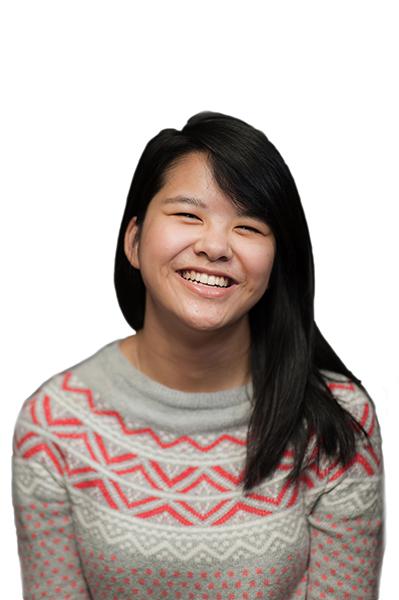Ao: Social media is becoming less social

November 17, 2014
I remember when I signed up for a new Twitter account at the beginning of my freshman year. My journalism professor made it part of our assignments to tweet links to our stories, just to get us freshmen in the mindset of using social media as a professional tool. As I deleted my old Twitter, cluttered with angst-filled complaints, song lyrics and jokes I thought were clever from my high school years, I felt a little sad. My Twitter was no longer a reflection of my interests and personality — it was now something that future employers would look at and judge.
Today, it feels as if social media is no longer “social” for many college students. Instead, we feel self-conscious whenever we post something on Facebook or Twitter. Every time I post a status or share an article, thoughts like, “Will my future boss find this interesting?” and “Will other students think I’m annoying for sharing this one thing 5 billion times?” run through my head. High school students change their names on Facebook when college application season rolls around every year. Social media is supposed to reflect us. However, when there are so many consequences attached to something shared through social media, the reflections become narrow and distorted.
That’s one of the reasons why Yik Yak appeals to so many students. Yik Yak allows social media users to post anonymous comments to the Northwestern thread. It also lets people upvote or downvote other comments. The anonymity on Yik Yak allows people to be brutally, sometimes disgustingly honest — something you don’t see much on Twitter or Facebook anymore.
So how can we use social media in a more honest way that doesn’t hinder us from landing our dream jobs in a few years? Is it even possible? It’s definitely tricky, but it’s not impossible.
One of my friends told me that when she finds something she wants to share on Twitter or Facebook, she has a process she uses to decide whether to post it or not. First, she thinks about whether the post in question needs to be said. It’s important to consider whether your thoughts are timely, relevant and constructive to the conversation at hand, especially if it’s about a sensitive issue. Another thing I like doing on social media is to ask for a response from people who read it. Pose a question to your friends so they’ll respond to your thoughts to make social media more social and less like a block of text your friends probably won’t even bother reading.
The second thing my friend does is consider whether or not what she’s trying to say on social media needs to be said by her. Let’s face it: We’ve all been tempted to chime in on an issue that we didn’t really have a say in. But sometimes it’s better to just leave a conversation alone instead of jumping in when you don’t really know what you’re talking about. If the issue isn’t one that’s relevant or familiar to you, it’s better to leave it alone instead of accidentally offending your peers.
I’ve found that just remembering those two things has helped me bridge the gap between professional and honest usage of social media. I feel a lot more comfortable and honest these days linking articles through my Twitter and Facebook, and I’m not too worried about getting rejected from internships because editors scoured my public social media profiles and saw something that was inappropriate.
It’s obvious that the ways people use social media are evolving, but that doesn’t mean our relationships with social media have to be less genuine. We just need to be smarter with what we post and when we post it, but it’s still possible to express ourselves freely through our Twitter feeds.
Bethany Ao is a Medill sophomore. She can be reached at [email protected]. If you would like to respond publicly to this column, send a Letter to the Editor to [email protected].

